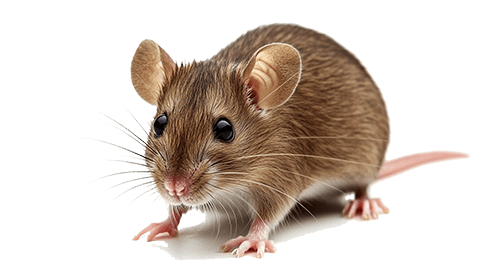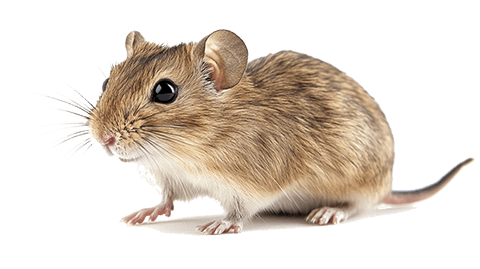Rats as Pets—An Overlooked Gem

When most people hear the word “rat,” they picture a scurrying street creature or an unwelcome visitor in their home. But here’s the truth—domesticated rats make fantastic pets. They’re intelligent, affectionate, and surprisingly low-maintenance. Forget the negative stereotypes and get to know these little critters up close. You’ll soon discover that rats can bring joy, companionship, and plenty of entertainment into your life.
What They Do—Active and Inquisitive
Rats are curious explorers by nature. They love to investigate their environment, which means providing them with an engaging, enriched space is essential. A large cage with plenty of tunnels, toys, and levels will keep them busy and mentally stimulated. They’re also climbers, so adding some ropes or hammocks can keep things interesting.
On average, a rat needs about 2 hours of free-range time outside its cage each day. They’re social animals and enjoy interacting with humans, so letting them roam around a safe space in your home under supervision is a great way for them to get some exercise.
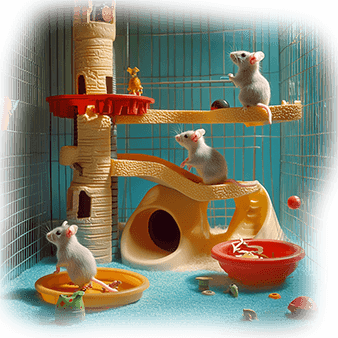
Sleeping Habits—Night Owls (Mostly)
Rats are primarily nocturnal, meaning they’re most active during the night. However, they aren’t strictly night creatures. Domesticated rats often adjust to the schedules of their human companions, so you’ll notice they can be up and about during the day too, especially if they know they’ll be getting some attention or treats. They generally need about 12 to 14 hours of sleep daily, and they tend to nap in short bursts rather than in long, uninterrupted sessions. Provide them with cozy places to sleep—rats love sleeping in small, enclosed areas, so hammocks, fleece bedding, or even a little wooden house are all perfect choices.

Feeding Habits—Balanced Diet is Key
Rats have a pretty diverse diet. In the wild, they’re omnivores, eating everything from grains to small insects. As pets, a well-balanced diet is important for their health. A good-quality commercial rat food (pellets or blocks) should be the base of their diet. You can supplement this with fresh vegetables, fruits, and occasional protein sources like cooked eggs or chicken. Just remember to avoid feeding them junk food—processed sugars, too much salt, and fatty foods can lead to obesity and other health issues in rats, just like in humans.
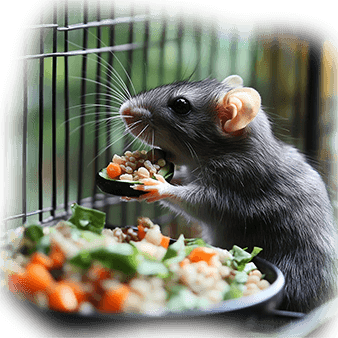
Rats love to forage, so you can make feeding time more fun by hiding bits of their food around their cage or stuffing treats into puzzle toys. This helps keep their minds sharp and satisfies their natural instinct to scavenge.
What They Like—Company and Playtime
Rats are highly social animals and thrive in groups. It’s best to keep at least two rats together, ideally of the same sex to avoid accidental litters. If you only keep one, they can get lonely and even depressed—no one wants a sad rat! Rats in pairs or groups will groom each other, play, and even cuddle up when they sleep, so it’s better for their emotional and psychological well-being.
When it comes to interacting with humans, rats quickly bond with their owners. They enjoy being handled, petted, and even taught tricks. Rats are smart—they can learn to respond to their names, come when called, and even do tricks like fetching or spinning in circles for treats.
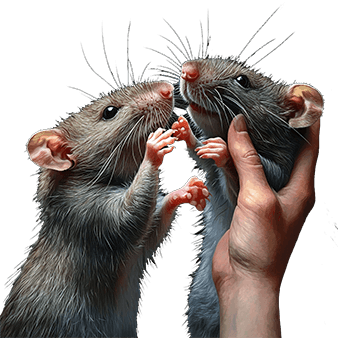
Their Relationship With Humans—Friendly and Affectionate
Unlike their wild counterparts, domesticated rats are incredibly friendly and enjoy human interaction. They often form strong bonds with their owners and show affection by grooming your fingers or snuggling up in your lap. Don’t be surprised if your rat tries to climb onto your shoulder or burrows into your hoodie. Rats love warmth and comfort, and they love being close to their humans.
Another interesting fact—rats are very clean animals. They groom themselves frequently and are much less likely to carry diseases than their wild relatives. As long as their environment is kept clean, pet rats are not smelly, contrary to popular belief.
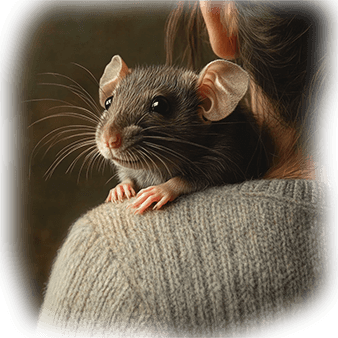
Activity—Highly Energetic Yet Gentle
Rats are extremely active when they’re awake, especially during their playtime outside the cage. They’ll zoom around, climb anything they can, and are always looking for something to chew on—this keeps their teeth healthy, as rat teeth never stop growing! That’s why giving them plenty of chewable items like wooden toys is essential.
But they’re also gentle and can make fantastic pets for both children and adults alike. Since they rarely bite (unless they’re scared or in pain), they’re a good choice for families, as long as children are taught to handle them properly.
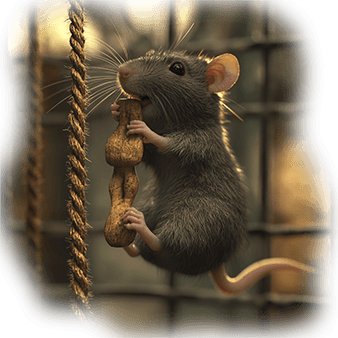
Interesting Facts About Rats as Pets
- Rats can laugh—scientists have discovered that rats actually laugh when they’re tickled. Although we can’t hear it with the naked ear, they emit high-frequency sounds that are similar to human laughter.
- Rats dream just like we do—when they sleep, their brain waves are remarkably similar to those of humans. Studies suggest that rats can dream about things they did during the day, like running through mazes or playing.
- Rats have great memories—once they learn a navigation route, they rarely forget it. This trait makes them excellent learners when it comes to tricks or commands.
- They form complex social structures—just like humans, rats have social hierarchies within their groups. They’ll groom each other, play together, and even comfort one another when stressed or anxious.
- Rats are excellent swimmers—though not all rats enjoy water, some will happily paddle around. Pet rats can be introduced to shallow water play (always supervised) if they seem curious about it.
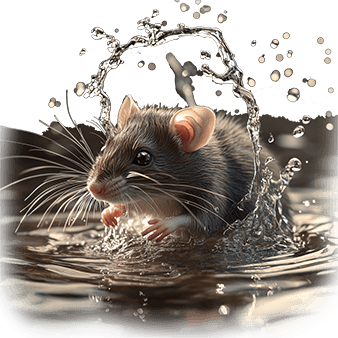
Conclusion—Why Choose a Rat?
If you’re looking for an affectionate, intelligent, and playful pet, rats could be the perfect addition to your household. They’re low-maintenance compared to larger pets, incredibly social, and can develop strong bonds with their owners. Rats deserve a second look as pets, and once you get to know them, you might just find them stealing your heart—one whisker twitch at a time.
Ready to let a rat scurry into your life? You won’t regret it!
Further reading: “Pet Rat Care” (Amazon affiliate link) by Zoe Lumour.
Affiliate Disclosure
This post may contain affiliate links, which means I earn from purchases made through links. Please see the privacy policy page for more details.




